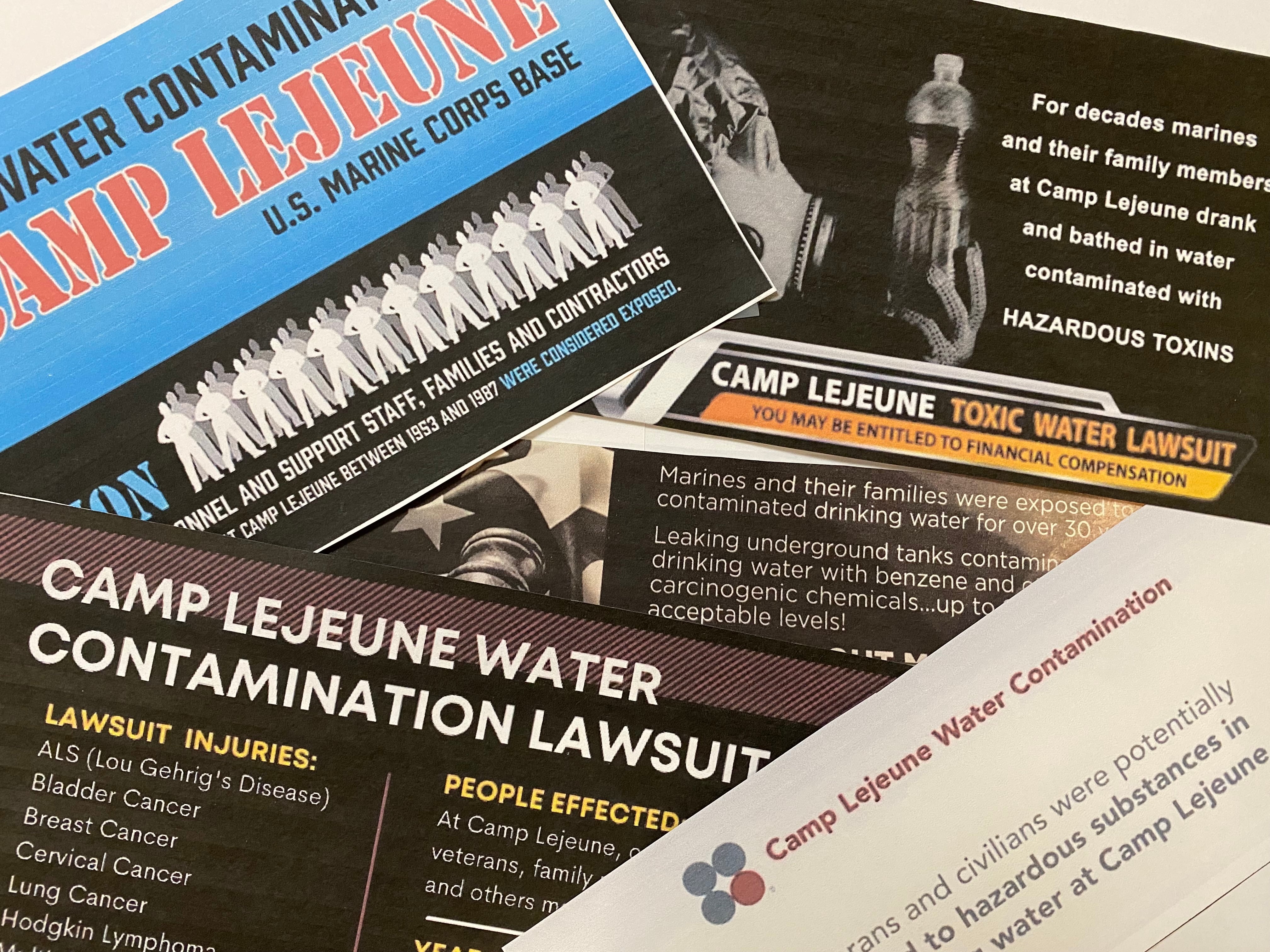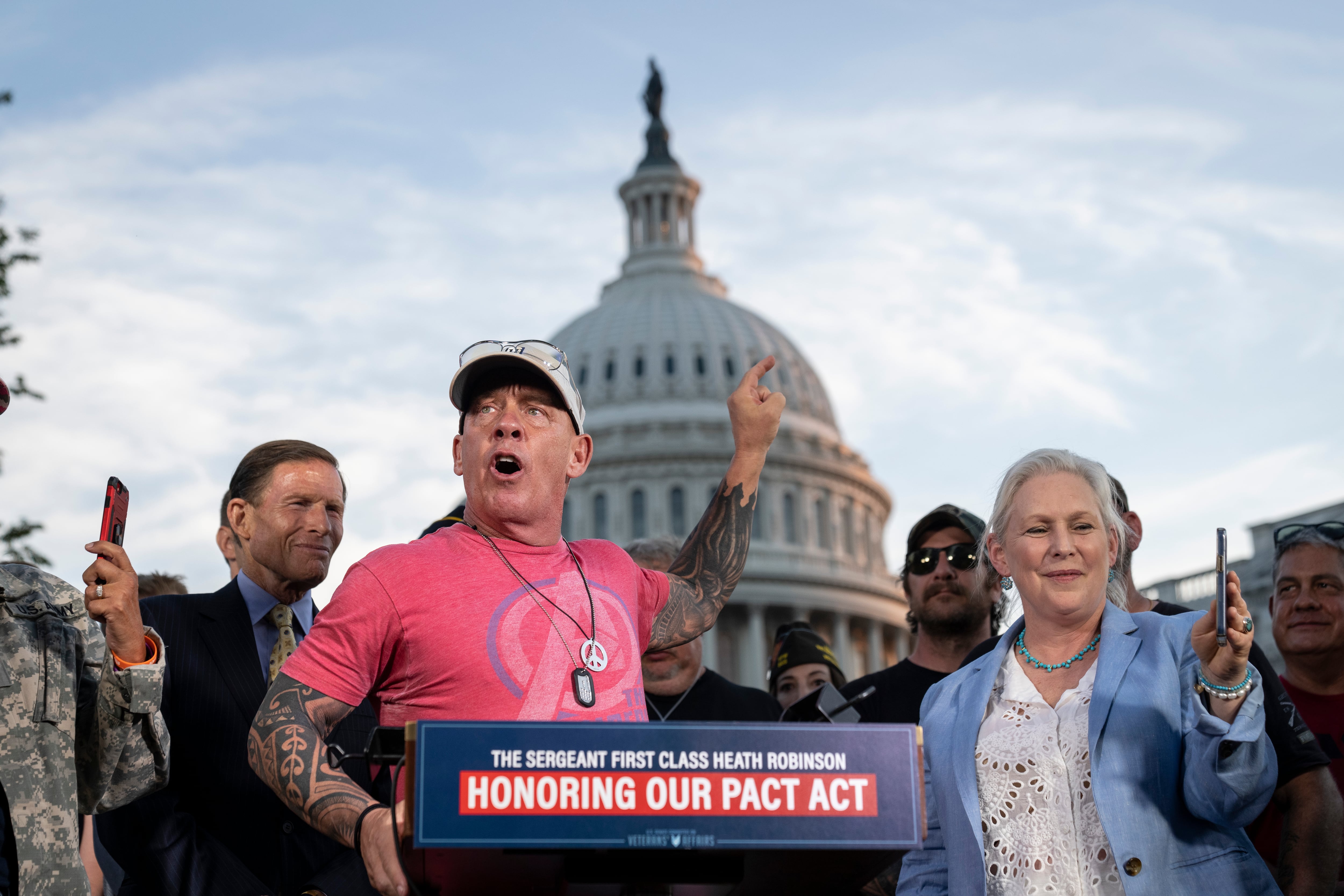Marine Corps veteran Sen. Dan Sullivan plans to introduce legislation capping attorneys’ fees for claims related to injuries from water contamination at Marine Corps Base Camp Lejeune, North Carolina, saying veterans and their families need to be protected from “blood suckers” and predatory lawyers looking to take advantage of them.
“You can’t turn on any TV station in America without seeing these ads,” said Sullivan, R-Alaska, during an emotional speech at the Senate Veterans’ Affairs Committee hearing on Wednesday. “I’m hearing they’re charging 40 to 50 percent contingency fees.
“So sick Marines get nothing, and trial lawyers get rich.”
At issue is a provision signed into law in August as part of the Promise to Address Comprehensive Toxics Act, better known as the PACT Act.
RELATED

The measure includes almost $300 billion in new financial benefits for veterans suffering from illnesses caused by burn pit smoke in Iraq and Afghanistan, Agent Orange spraying in Vietnam, and several other military toxic exposure events.
But the legislation also included provisions dubbed the “Camp Lejeune Justice Act,” which allows civil suits against the government for injuries related to water contamination at the Marine Corps base from August 1953 to December 1987.
In the past, Congress adopted legislation easing rules for veterans and their family members who developed rare cancers and other sicknesses to receive health care through the Department of Veterans Affairs.
But for families that did not qualify for those benefits — or for individuals who feel those benefits don’t go far enough — the Camp Lejeune Justice Act allows them to file civil suits against the government.
Both Veterans Affairs officials and veterans service organizations have warned in recent months that many lawyers filing suit against the government may not have veterans’ best interest in mind, and that veterans could lose money by suing the government.
That’s because potential cash awards may be offset by benefits already given to the veterans, VA officials said. Attorneys could end up collecting significant fees while veterans see monthly payouts slashed to offset the court judgements.
Veterans Affairs officials have worked in recent weeks to encourage veterans to contact the department first to see what benefits they may be eligible for, before signing any agreements with law firms.
“I’m certainly not here to disparage any organization or certainly any law firm in terms of them engaging with veterans,” said Charles Tapp, chief financial officer at the Veterans Benefits Administration. “But veterans have the opportunity to get the support and help they need with filing an initial claim free of charge by reaching out to VA.”
Sullivan said those public education campaigns aren’t enough, however. He wants lawmakers to fast-track legislation before the end of this year, which would place a 2% cap on filing fees for lawsuits related to the new law and a 10% cap on contingency fees for trial lawyers.
“If you don’t cap the contingency fees on these unscrupulous lawyers, they’re going to get all the money,” he said. “There’s going to be billions of dollars going to these predatory law firms at the expense of the United States Marines.”
Similar legislation was introduced earlier this year, but not included in the final PACT Act.
Sullivan called the plan an urgent need, but several colleagues on the committee were skeptical of his proposed fix, saying the legislation was already approved with bipartisan support.
“When this [provision] was debated, this issue was not brought up at all,” said committee Chairman Jon Tester, D-Mont. “In the end, it’s the Marine’s choice. And if [a senator] wants to deny them that choice, then, wow.”
RELATED

Tester said he is pressing VA officials to step up their outreach efforts to veterans to better educate them on the law and the potential financial problems. “And if there are scammers out there, we need to have those folks held accountable.”
Committee ranking member Jerry Moran, R-Kansas, said he planned to look into Sullivan’s proposal but stopped short of endorsing the idea.
“The next step for me is getting more acquainted with the nature of these claims and finding out whether an attorney is an essential or useful ingredient in getting a result,” he said.
VA officials are encouraging all veterans and families with questions regarding the Camp Lejeune lawsuits to call their information line at 1-800-827-1000 or visit their web page on the issue.
Individuals can also talk to Department of Justice staffers about cases of false advertising or fraud by calling 202-353-4426.
Leo covers Congress, Veterans Affairs and the White House for Military Times. He has covered Washington, D.C. since 2004, focusing on military personnel and veterans policies. His work has earned numerous honors, including a 2009 Polk award, a 2010 National Headliner Award, the IAVA Leadership in Journalism award and the VFW News Media award.





